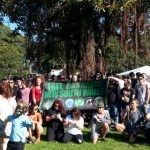‘How to Steal Guide’ – Free Speech or Illegally Inciting Crime?

The fascinating ‘Rabelais case’ explores the limitations on freedom of speech within our democratic society – raising the interesting question of whether the ‘freedom’ extends to publishing tips on engaging in illegal activity.
The Story
In 1995, a newspaper by La Trobe University, Melbourne, published a piece called “The Art of Shoplifting.”
It included a short introduction about the flaws of capitalism before divulging tips on how to shoplift. The article started out by saying:
“Shoplifting is a topic that is practically relevant to many and it should therefore not become an exclusive craft confined to a small shoplifting elite. On the contrary, shoplifting is an art that deserves the widest possible dissemination. For your convenience we have printed below a step-by-step guide to shoplifting. Good luck.”
It went on to give detailed advice on how to avoid the scrutiny of retail staff and make a safe exit from the store. Importantly, the article appeared to come from a ‘robin-hood’ perspective, where shoplifting was seen as an act of stealing from the wealthy to even out the disparity between rich and poor.
The controversial article was published in Rabelais, the University newspaper, but due to complaints from retailers, it was denied classification and effectively banned from distribution. The Chief Censor reasoning for banning the piece was that it promoted, incited and instructed in matters or crime or violence.
But the editors applied for an internal review of this decision. The review board found that the article was not satirical or ironic, that it lacked literary and artistic merit, that its tone bordered on malicious, and that it instructed on matters of crime. It therefore upheld the Chief Censor’s decision and refused classification.
The newspaper’s editors then applied to the Federal Court of Australia, where they were unsuccessful at first instance.
Undeterred, they took the case to the Full Court of the Federal Court. There, the issue before the judges was whether the refusal of the classification contravened the constitutionally protected right to political communication.
The Result
The Full Bench found that “the freedom to criticise public bodies is regarded by the courts as one of the most important freedoms.”
However, although certain types of free speech are protected by our constitution, freedom of speech is not absolute. Rather, it is open to governments to enact legislation restricting or inhibiting free speech, as long as it does not infringe on our constitutionally protected freedom of political communication and discussion.
The Full Bench ultimately found against the newspaper’s editors, once again confirming the Chief Censor’s decision to effectively ban the article.
Justice Heerey found that the article could not come under the protection of the freedom of political communication because it does not concern political or government matters, nor does it advocate a repeal of laws concerning theft. He stated that:
“There is no constitutional protection for speech which is “mere advocacy” or abstract teaching of the necessity or propriety of criminal or violent conduct…Such conduct does not form part of the system of representative and responsible government or of the political and democratic process.”
Have you been charged with shoplifting?
In NSW, shoplifting can be dealt with by way of an on-the-spot fine, or police may choose to give you a Court Attendance Notice, which means you will have to go to court.
Facing court for a shoplifting offence can be a daunting and stressful experience for anyone.
In order to get the best possible outcome, it is a good idea to seek advice from experienced criminal lawyers. Some law firms offer a free first consultation and fixed fees, so you can get an idea of your options, the best way forward and the cost – before deciding whether to engage a lawyer or represent yourself in court.






